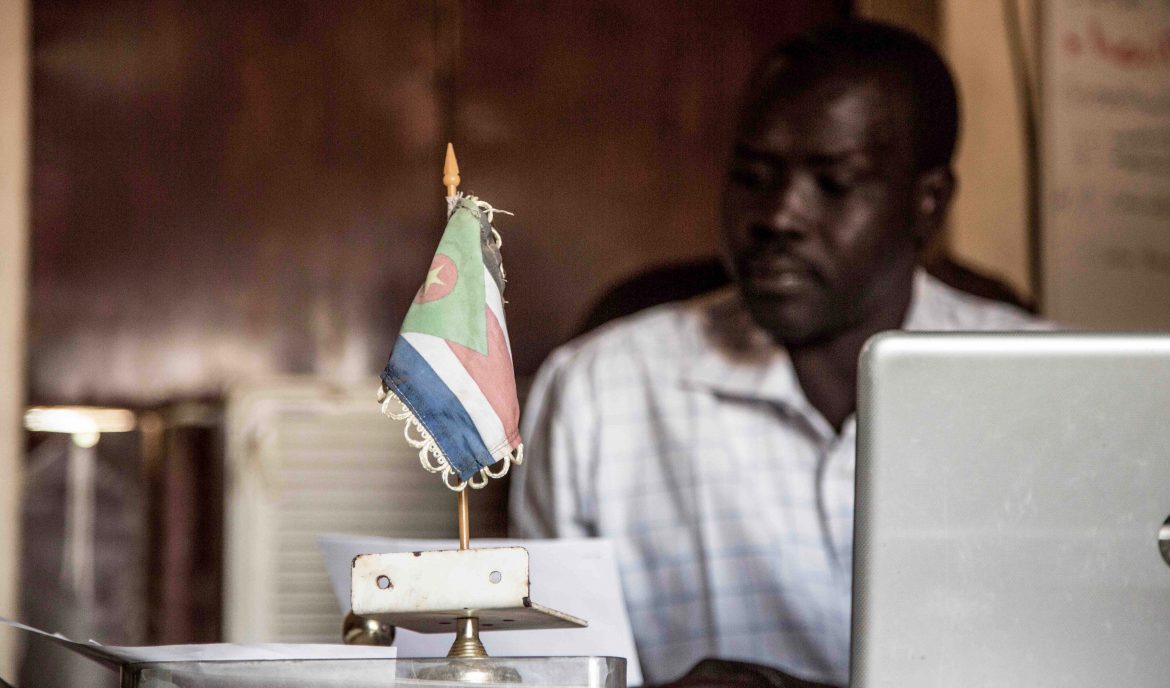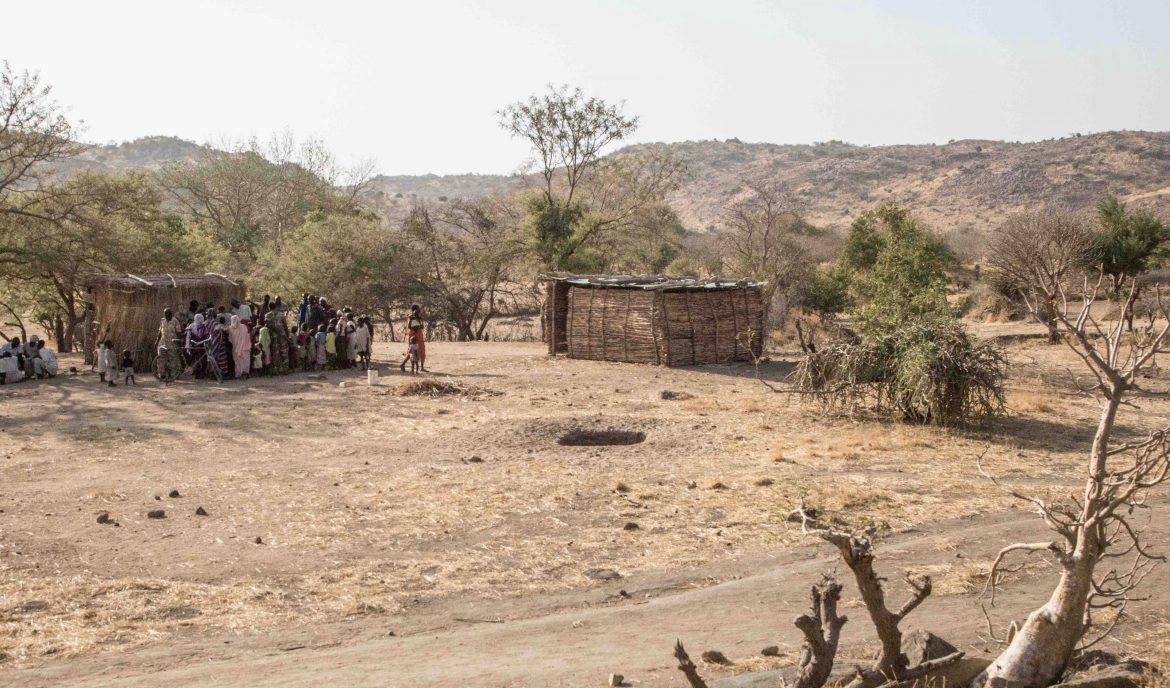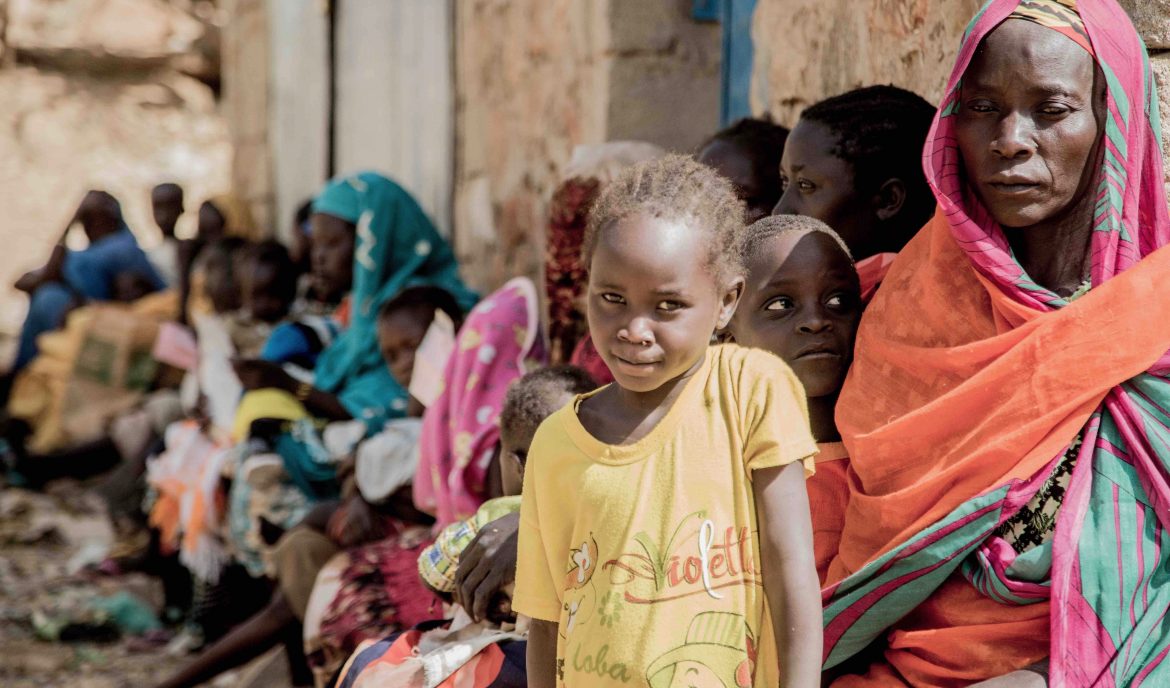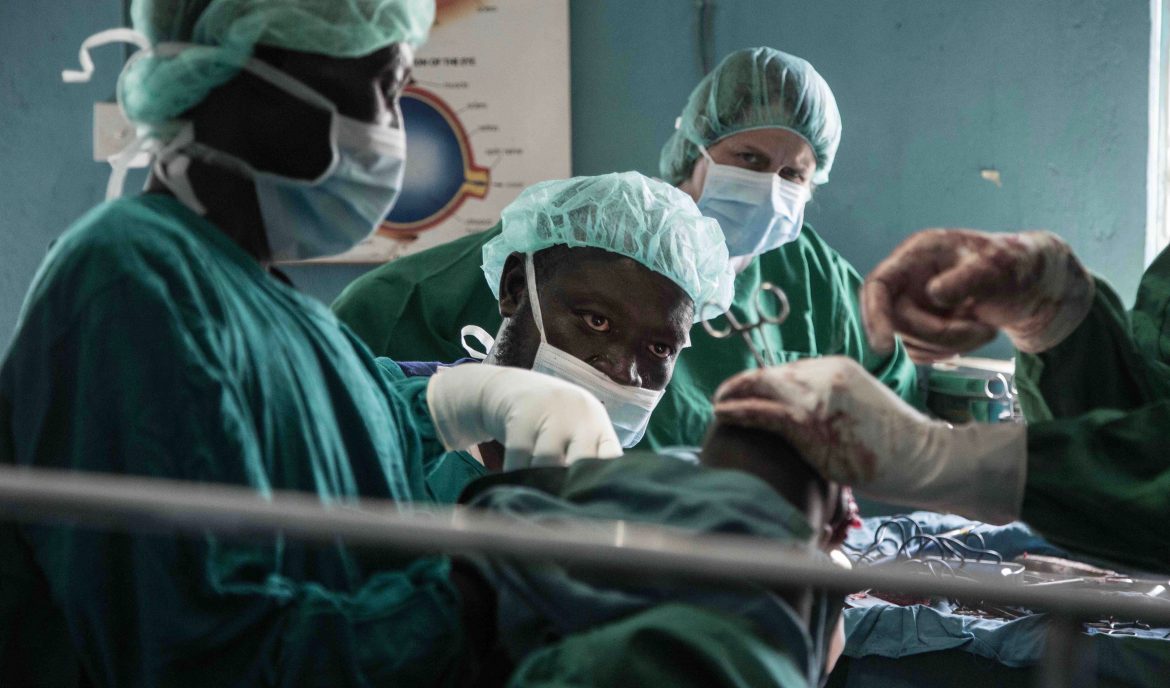This story was first published by Deutche Welle.
A radio version first published by Deutche Welle is also available here.
It is hot in the theatre room in the German Emergency doctors’ (GED) hospital in Lwere in the Nuba Mountains of Sudan. A nurse, is wiping over Joseph Yacoub’s sweaty face.
“Are you OK Michael?” Joseph asks, another young nurse next to him and then explains, “It is his first surgery of this kind.”
Joseph grins. Joseph just amputated a young man’s lower leg. In a family disagreement the man got shot in his leg. For Joseph this operation is nothing new.
“Since I started working with GED in 98, it is very common, I got like more than a 100 patients. And I got them because of family issues. They argue and at the end they are hitting themselves or shooting themselves. The war has left them traumatized and everyone has a weapon.”
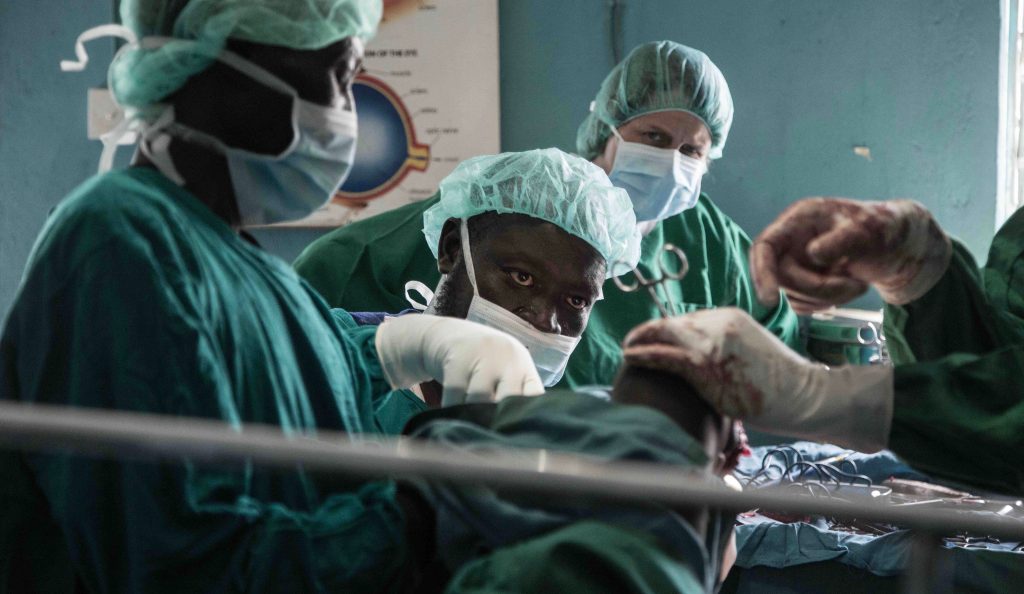
Joseph Yacoub in the operating theater at Lwere Hospital (Laura Wagenknecht)
The forgotten war in the Nuba Mountains
Joseph speaks of the war between the rebel forces of the SPLA-N and the government of Sudan. Since the eighties, the Nuba are fighting for more independence and more say in the future of their country. The Nuba played a significant role in the fight for South Sudan’s independence in 2011 but never enjoyed peace for themselves. After Sudan authorities reneged on certain key pledges, the SPLA-N went back to fighting Khartoum in 2011.
Since then the government’s airplanes are not only targeting rebels but also the fields and homes of the civilian population, schools and hospitals.
For the past 20 years, GED, a German non governmental organisation, are running the hospital in Lwere, in the rebel held area. Government bombs often targeted the small but crucial hospital. Johannes Plate is managing the project in the Nuba Mountains. The 33 year old German knows the bombs are not the only problem the organisation is facing:
“The government in Khartoum banned all humanitarian aid from the region. This means we are operating illegally here which hence means we won’t get any support from anyone. All of our supplies, everything that goes in and out of the mountains, come through South Sudan. It is one road that keeps us alive. If that one is taken our lifeline is cut.” For three years now Johannes lives and works in the Nuba Mountains, contending with life in a war zone.
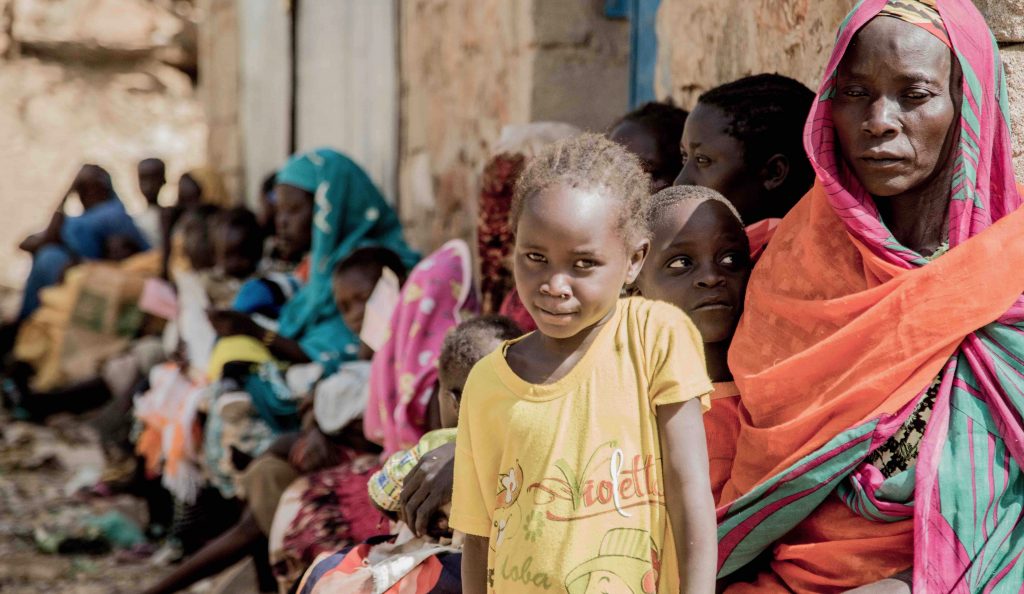
Patients wait outside Lwere Hospital (Laura Wagenknecht)
Women and children are suffering
Some of those most affected by the war are not wounded soldiers but the war affected women and children, Plate said. Women have to work in the fields and provide for their families while their husbands are fighting on the frontlines. There is no electricity, no communication networks, no running water and no means of transport. To fetch water women sometimes have to walk for hours to the next borehole and carry the heavy water cans back to their children.
Joseph, a Nuba native, knows the suffering of the women here. He sees cases of this suffering every day in the hospital.
“Our women have to concentrate on so many things that sometimes a child can be neglected. Women have many children and have to run the whole household. When one child is getting sick, it can be hard for them to care in the right way for the child.”
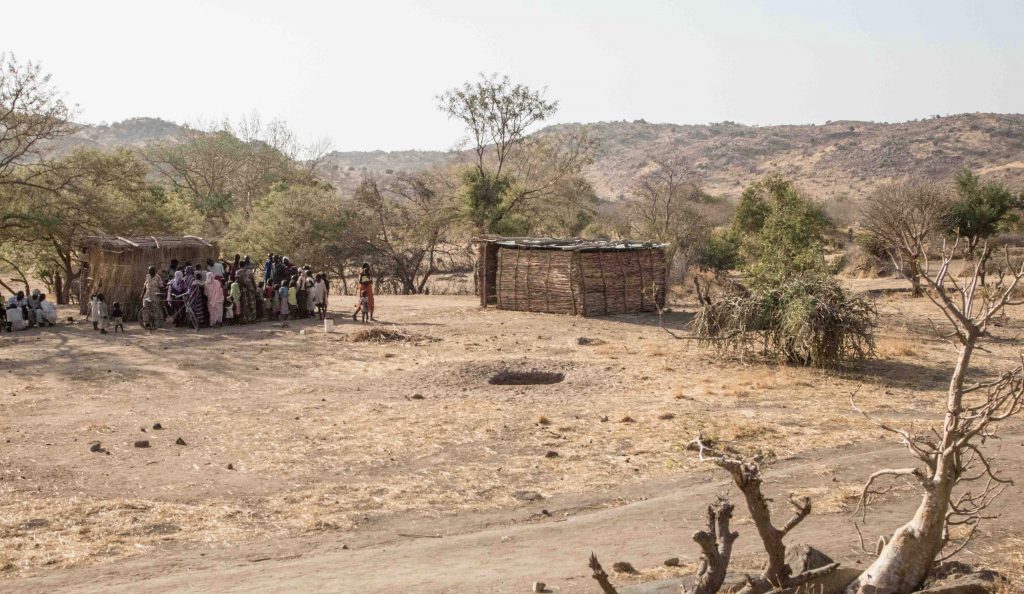
One of Lwere’s mobile clinics assisting those who cannot reach Lwere (Laura Wagenknecht)
Lack of transport becomes a threat for life
A woman in Nuba has on average seven children. Often when one child is sick the women don’t know what to do with the other children while they take the long walk to the hospital in Lwere or one of the outpost clinics. Sometimes forced to walk for days to reach a medical facility, some simply do not make it in time.
GED has one hospital and six smaller outpost clinics in the Nuba Mountains. Since last year Johannes is also providing a mobile clinic. He takes medicine and drives deep into the mountains were the internal displaced people (IDP) live with extremely limited access to any health facility. Thousands fled the fertile agricultural flats last year when the government launched a large attack on the rebel held area. With the mobile clinic GED is trying to at least treat some of their complaints, but they certainly can’t help everyone.
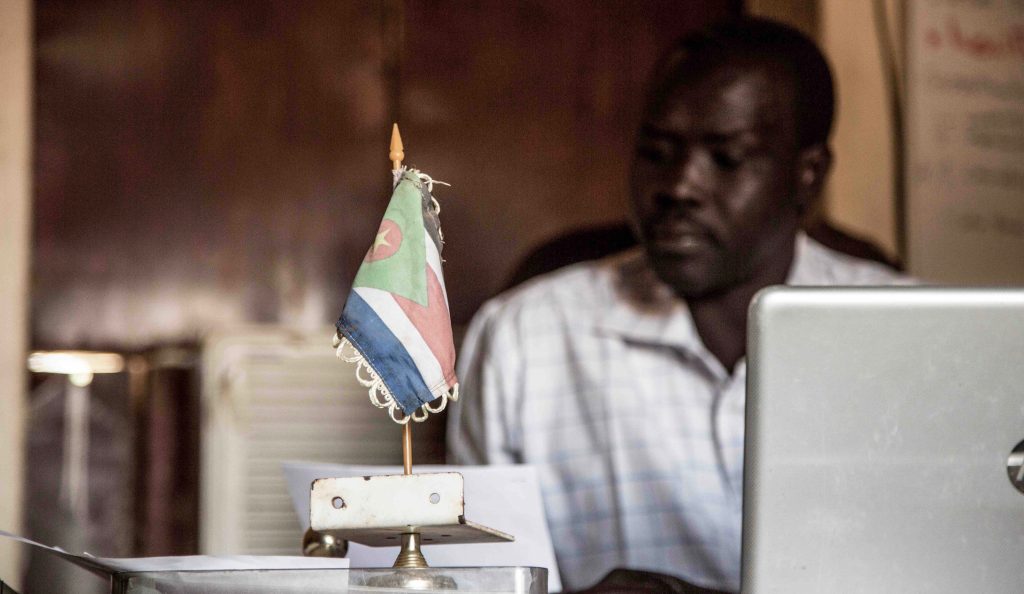
Minister of Health Tutu Turkash (Laura Wagenknecht)
The rebel ministry of health
The rebels also try to provide for the people living on their territory. They have their own governmental body run by the SPLM-N the political party of the SPLA-N. Tutu Turkash is the Secretary of Health in this government. He knows, without GED and the handful of other organisations working in the health sector, the situation would be worse.
“Our main challenges are the medical supplies and having enough medical personnel. We are targeting 1.2 Million people living in our area. With the supplies we have we can’t give service for all of them.”
Joseph at the hospital of GED is one of the few clinical officers in the Nuba Mountains. Education is scarce and the few people who get higher education and qualify for a medical carrier leave the country. Even though Joseph had the opportunity to leave the war zone, he remains. “I don’t feel I can leave my family and the Nuba Mountains. With the little skills I have and the surgery that I can do, why should I run away with it? I better use it and utilise it for my own community, because there are more needy people.”

